Winthrop Town Attorney Lee Bragg seemed taken aback when asked in December if he knew about an August police sting to nail the person who stole his 26-year-old son’s golf clubs.
“I know nothing about it,” “I can’t say,” “I can’t imagine why you’d be calling me” and “I have no knowledge,” were among Bragg’s responses in an interview.
Those reactions, however, are contradicted by Winthrop Police Chief Joseph Young’s account of the sting.
According to Young, Bragg called him seeking advice more than an hour after the golf clubs were reported stolen. The clubs were swiped from Ross Bragg’s car more than a month earlier at the ski resort where he works.
Young said Bragg was frustrated with the Oxford County Sheriff’s Office response and feared the thief would soon sell the clubs to someone else, so Young agreed to help set up a sting operation to get them back.
Not only did Young say Lee Bragg first contacted him about the clubs, Young said he talked to the town attorney after the sting.
Lee Bragg “was pleased with the way it went down,” Young said in a December interview.
Ross Bragg, the attorney’s son, was also pleased. At 6:15 p.m. on Aug. 27, about 45 minutes after Joel Coon found himself face down in a grocery store parking lot with a gun pointed at him, Bragg posted on his Facebook page: “sting operation was a success!!”
It was for him — he got his clubs back. But was it good law enforcement?
Urey Patrick, a former FBI agent who lives in Winterport and runs a firearms and deadly force consulting business, said Coon was “an unknown person of reasonably possible criminal involvement.”
Patrick said Young’s actions “were not unreasonable to achieve the legitimate purpose of preempting resistance and preventing the necessity to use greater and injurious force to control Mr. Coon and sort out what if any criminal involvement he had.”
But a Florida law enforcement expert who reviewed case documents for the Kennebec Journal said Young made many mistakes, including rushing the sting and making it “a lot more dangerous than it had to be.”
“It sounds like he rushed into it because that was just the way the victim set it up,” said Chuck Drago. “He wasn’t able to take the time to pre-plan it.
“And that’s the biggest mistake of the whole thing, I think,” said Drago, a former assistant police chief in Fort Lauderdale, Fla., who has a law enforcement consulting firm.
And there are issues that go beyond law enforcement techniques, others say.
Zachary Heiden, legal director of the American Civil Liberties Union of Maine, who also reviewed case files, said the sting and its result — a loaded gun aimed at an innocent man — was an unnecessary response to a petty crime.
“There are two important issues here: the use of force in a manner that wasn’t effective under the circumstances, but also the abuse of power,” Heiden said. “Police officers are given special authority, but that should make them more responsible to the law and not less.”
The problem boils down to an issue of entitlement — from Lee Bragg, to Young, to Winthrop’s town government, according to David Sanders, a Livermore Falls-based criminal defense attorney who has served as vice chairman of the state Board of the Overseers of the Bar.
Sanders raised concerns of favoritism, saying if it were his child’s clubs that were stolen, Young “would laugh” and “certainly would not have gotten involved in the case.”
“You have to start asking: What the hell was he doing there?” Sanders said. “He’s a town employee. There’s no part of this crime that occurred in the town. He was not asked by another town where the crime was occurring to become involved. It’s vigilante justice, that’s what it is.”
Operation confusion
Gardiner Police Detective Michael Durham learned at 4:05 p.m. on Aug. 27 that Young was planning the sting.
It wasn’t unusual for such an operation to be set up in Gardiner, even though the city had no connection with it, said Gardiner Police Chief James Toman.
“Investigations are complex in nature and with criminals being very mobile, officers in departments that investigate are quite often led to other towns, municipalities and counties,” Toman said in a January interview. “It was nothing out of the ordinary.”
Yet Young couldn’t tell Toman whether the sting was going to happen that day or the next, who the seller was or what he’d be driving, Durham wrote in his police report.
Toman also knew Young was planning to pose as Ross Bragg’s father.
Since he didn’t know when the sting was going to happen, Durham went home at the end of his shift. Shortly after, at 5:20 p.m., Young called and said it was happening in 10 minutes, but Durham said Young “did not have any additional information.”
“It was a last-minute thing and whenever last-minute things pop up, there’s usually some pause or concern,” said Toman, who added that Durham wasn’t overly worried about the circumstances. “Unfortunately, things happen. You get called in later and that’s just the way it is.”
Young said he was playing golf in Litchfield when he got a call from Ross Bragg saying the meeting with Coon was set up. The chief said he went from there to a J&S Oil store in Farmingdale to pick up Ross Bragg for the drive to Gardiner.
Drago said it was a red flag that Ross Bragg was apparently controlling the timing of the sting.
“Undercover operations 101 is you don’t let the non-police officers drive your operation,” he said. “The victim is not a police officer. He doesn’t understand danger. He doesn’t understand what could happen. He just wants to get his clubs back.”
Drago said the lack of planning caused a host of other problems.
Durham raced to Hannaford in his personal car and saw Coon, though no one involved knew his name at the time. Coon was sitting on the tailgate of his GMC Suburban with the golf clubs. Durham tried to call Young to update him and got no answer.
Young had accidentally left his cellphone at the golf course in Litchfield and he said he was driving his off-duty, unmarked, town-issued car. It was new at the time and wasn’t equipped with emergency lights and radio, he said.
Young and Bragg said as they drove to Gardiner they discussed responses to scenarios that could arise at the scene.
Drago said an officer going to a planned operation must be in contact with fellow officers. With no radio or cellphone contact, Young was cut off and the Gardiner officers didn’t have a clear understanding of what was going on, Drago said.
Toman said that Young arriving at the scene without a means to communicate was an oversight, but one that wouldn’t happen again if Young had to conduct a similar operation in Gardiner.
Young also conceded that it wasn’t ideal to have Ross Bragg there.
“Most of the time, we don’t like to get the victims involved,” he said. But he said he needed him there to identify the clubs and “secure the case.”
Still, Young said the operation “was done as safely as possible under the circumstances.”
“Could it have been safer?” Young said. “Yeah, it could have been if I had more information.”
Drago said they should have taken the time to get that information.
“There’s always time to go back later on,” he said. “There’s always time to set it up properly.”
Was a badge displayed?
Coon and Young disagree on what happened before Young drew his gun.
Young said he put his police badge in Coon’s face. Coon said he never saw a badge.
Ross Bragg said when he and Young were going through scenarios, the chief said he’d show his badge, but Bragg couldn’t see if he did when the time came. The Gardiner police report is silent on the issue.
Young said he told Coon the clubs were stolen. Coon said Young didn’t say anything about the clubs being stolen. Durham’s Gardiner police report doesn’t say whether Young identified the clubs as being stolen. Durham, who Young said was about 50 yards away in his car, reported racing toward the scene just after seeing Young draw his gun on Coon.
There is agreement that Young announced he was a police officer and ordered Coon to the ground twice. Bragg corroborated that.
Coon said he hesitated after both commands, not sure that Young — who was in shorts, T-shirt and a baseball cap — was a policeman and briefly wondering whether he was being robbed.
Heiden, of the ACLU, said he understands Coon’s confusion.
“This was a police officer not in uniform, not driving a police vehicle, who may or may not have shown his badge,” Heiden said, adding that freezing “would be a natural and easily anticipated reaction when a person has no idea that they’re dealing with police.”
But Young said in an interview that if Coon “had immediately did what I asked him to do without hesitation, there would have been no need to pull my gun out. We would have just had a conversation.”
Ross Bragg agreed, saying Young was calm and assertive. He said Coon should have responded more quickly. Bragg also said the Coons were taking a risk by buying golf clubs at a pawn shop, because they could have been stolen.
“I do not feel bad for him,” Bragg said. “I think it was completely warranted.”
Coon counters that there was no warning before the confrontation.
He and Young, who had introduced himself as Ross Bragg’s father, were speaking casually seconds before the gun was out and he was told to drop to the ground.
“There was absolutely no discourse, no conversation — not at all professional,” said Coon, who is a pharmacist at the Togus VA hospital.
“I’m not accustomed to being on the other side of the law as someone who works under tight regulations and restrictions. I’m used to working with cops collaboratively to take care of problems related to medication.”
Question of danger
Coon filed a complaint with the town of Winthrop after the sting.
Town Manager Jeffrey Woolston said he conducted an internal investigation and found that Young was justified in drawing his weapon.
“The real blame, if any, lies with the thief,” Woolston wrote to Coon after the finding.
Sanders, the criminal defense attorney, said he found that language offensive.
“The crook really wasn’t there and had nothing to do with this,” he said. And if Young “had shot and killed the guy, do you still blame the crook?”
Woolston said his investigation included talking with Young, reading Coon’s statement and looking at department policy on firearms use — the current version of which dates back to 1992 and was signed by Young. It says an officer should draw a weapon when he or she feels there’s a possibility of danger or suspects the other person has a weapon.
Woolston said Young’s actions passed muster as far as department policy, though he wouldn’t elaborate on the discussion about why Young drew his gun, because it was a personnel matter.
Sanders, however, said the action was a blatant policy violation.
Sanders was not involved in the case, but reviewed case files and the Winthrop department’s gun policy for the Kennebec Journal. The policy also says an officer “who elects to carry a firearm while off duty and in civilian attire must conceal the weapon when away from police headquarters.”
Young said in an interview that drawing his gun was a cautious approach and a combination of factors led to it.
Theft is on the rise in Maine, primarily related to drug abuse, Young said. In those cases, “people are acting out of desperation and they become more violent,” he said. “Forty years ago I might have handled this a lot differently than I’m handling it now.”
Young said he approached Coon with suspicion because of the way the clubs were stolen — out of Ross Bragg’s car — and the fact that Nolan Coon’s out-of-state telephone number was used as a contact.
When Coon didn’t respond to his commands to get on the ground, Young said he feared for his and Bragg’s safety.
“It was never my intention to go stick a gun in somebody’s face,” he said. “As a police officer, it’s always in the back of your mind that it may get to that point. I felt at that time it had gotten to that point.”
Young said he’s drawn his gun on people between 25 and 30 times in his 40-year law enforcement career, but he’s never fired his weapon in those circumstances.
Brian MacMaster, director of investigations for the Office of the Maine Attorney General, said his office did not receive a report or complaint about Young’s actions, saying the AG’s office only gets involved if the use of deadly force or criminal conduct by an officer is involved.
Heiden, the ACLU lawyer, noted the contrast between Young and Durham’s actions. Heiden said the Gardiner detective seemed respectful, clear, direct and non-threatening when interacting with Coon.
“We’re fortunate that’s the way most police officers in Maine go about their work,” he said.
Woolston was denied the Gardiner police report about the sting operation in time for his own investigation. Both Coon and the Kennebec Journal also requested the report and were likewise denied. The city’s attorney said at the time that the release of the report could interfere with the police investigation of the stolen golf clubs.
The Kennebec Journal’s public records request for the police report was granted in mid-December after Oxford County Sheriff Wayne Gallant said the investigation of the stolen clubs would be closed without prosecution of the actual thief.
Woolston read the police report Dec. 20 and said it “further supports my original finding and conclusion” that Young’s actions were justified.
That conclusion troubled Sanders.
“I don’t know which is worse, Young’s behavior or the town manager’s blind indifference to it,” he said.
Drawing the gun
Law enforcement experts mostly agree that Young was justified in drawing his gun.
But Sanders questioned whether the crime was serious enough to merit the response.
“The fact that he’s a law enforcement officer somewhere else makes the conduct worse because he clearly should have known better,” Sanders said of Young.
While Toman said he won’t second-guess Young, Heiden said “it is hard to imagine that there is ever an appropriate time to threaten somebody with a gun over a $65 set of golf clubs.”
Drago, the Florida law enforcement consultant, said although Young shouldn’t have let the situation get to the point where a gun was needed, drawing it was justified.
“It would be reasonable in terms of national standards in my opinion” to draw the gun, Drago said. “It wouldn’t have been reasonable to shoot him, obviously, but it would be reasonable to (draw) his firearm at that point.”
Richard Mears, an associate professor of justice studies at the University of Maine at Augusta, said Young was justified in taking preemptive action, because the circumstances of the crime were suspicious.
Young could have used a less aggressive approach with Coon, and it would have worked — but only from the benefit of hindsight, according to Patrick, the former FBI agent who lives in Winterport.
Kevin Cookson, a former Kennebec County Sheriff’s Office detective and chairman of Winthrop’s Town Council, said he knew some of the circumstances surrounding the sting and isn’t concerned about Young’s actions.
“To try and second guess that person for pulling their gun in a situation, which I did in my 20-plus years many times, is a very difficult thing to try and do,” he said. “If you did it based on state policy or town policy or city policy, then I don’t have a problem with it.”
But Drago said the conclusion bothers him.
“If I had an officer handle an investigation like that, I’d certainly make sure that he was retrained,” he said. “My biggest concern would be his supervision and who’s supervising him and how he got into a position to do something like that.”
Questions of favoritism
Coon wonders about what could have happened.
He said his brother was close to sending his sister and father to go to the meeting to sell the golf clubs. In his complaint to Woolston, Coon noted that his sister is mentally ill and his father is in poor health, and asked Young if he would “have responded in similar kind.”
“It just struck me really raw to be on the other end of someone abusing their position of authority,” Coon said. “It seemed like an all-too-familiar happenstance of small-town cop using his authority as he pleases.”
Young said he has known and worked with Lee Bragg for the 26 years he’s been Winthrop’s police chief. But friendship wasn’t a factor, because “quite honestly, I would have done it for anybody,” Young said.
The Kennebec Journal in January sought clarification from Lee Bragg after receiving the account Young provided to the Winthrop town manager. But Bragg, who initially said he didn’t know about the sting operation involving his son, wouldn’t comment further.
Karen Kingsley, a Hallowell lawyer who formerly was assistant bar counsel to the Maine Overseers of the Bar, the governing body for Maine lawyers, said she didn’t believe Bragg used his town position in a way that was inappropriate enough to raise concerns or merit discipline.
But Sanders said it was highly inappropriate for Bragg to call Young for help in the first place.
“He doesn’t do criminal work, but he ought to know better,” Sanders said of Bragg. “Property crimes, especially these kinds of property crimes, have very low priority. So, if he wanted to recapture the golf clubs for his son, he was going to have to pull some favors, and that’s exactly what he did here.”
Young maintains that he’d handle a similar situation the same way.
He hasn’t spoken with Coon since the sting, but said he understands Coon’s anger.
Young didn’t say he’d apologize.
“When I read his complaint, I felt for him,” Young said. “But, you know, I have a family. I want to go home at the end of the day. I want to go home to my family. I want to be able to live on to help other people.”
Michael Shepherd — 621-5632
mshepherd@mainetoday.com
Send questions/comments to the editors.

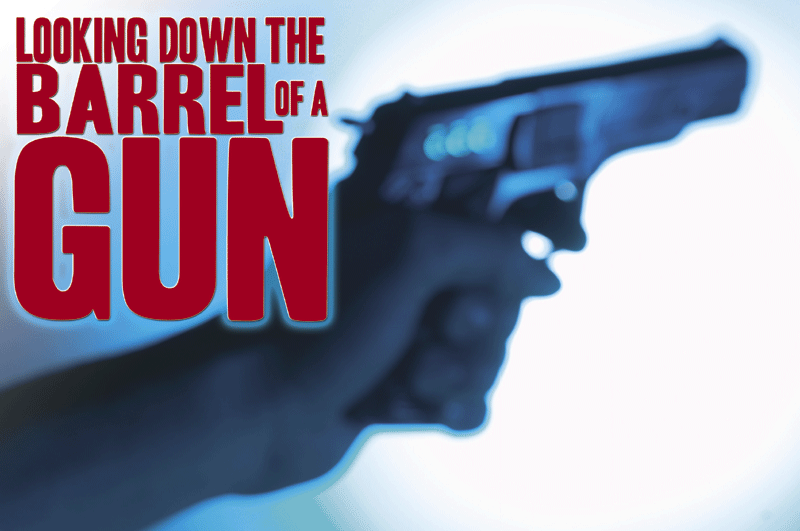
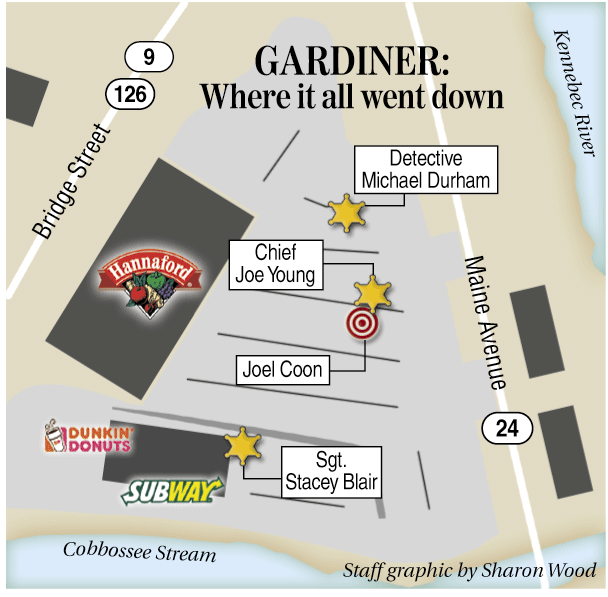
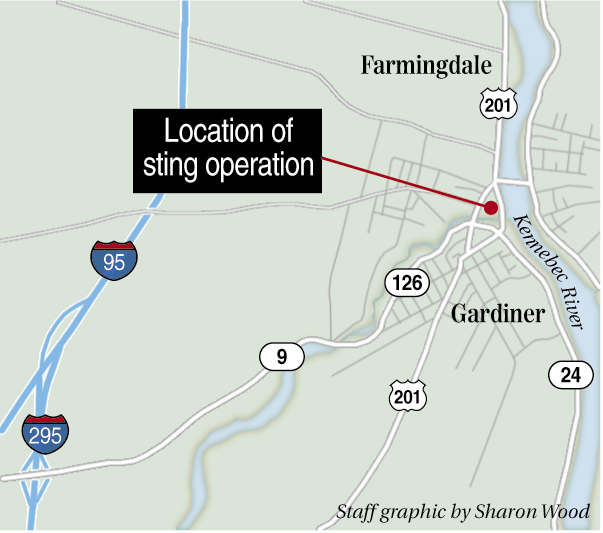
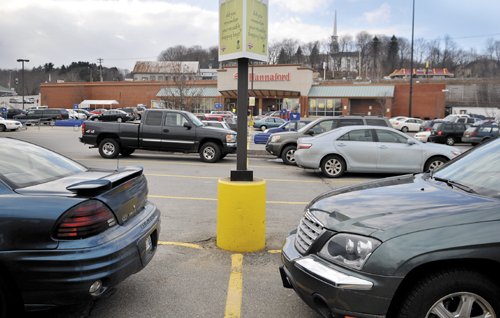
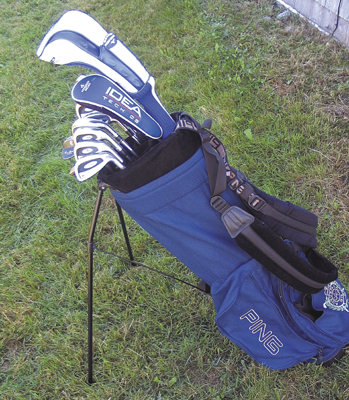

Comments are no longer available on this story